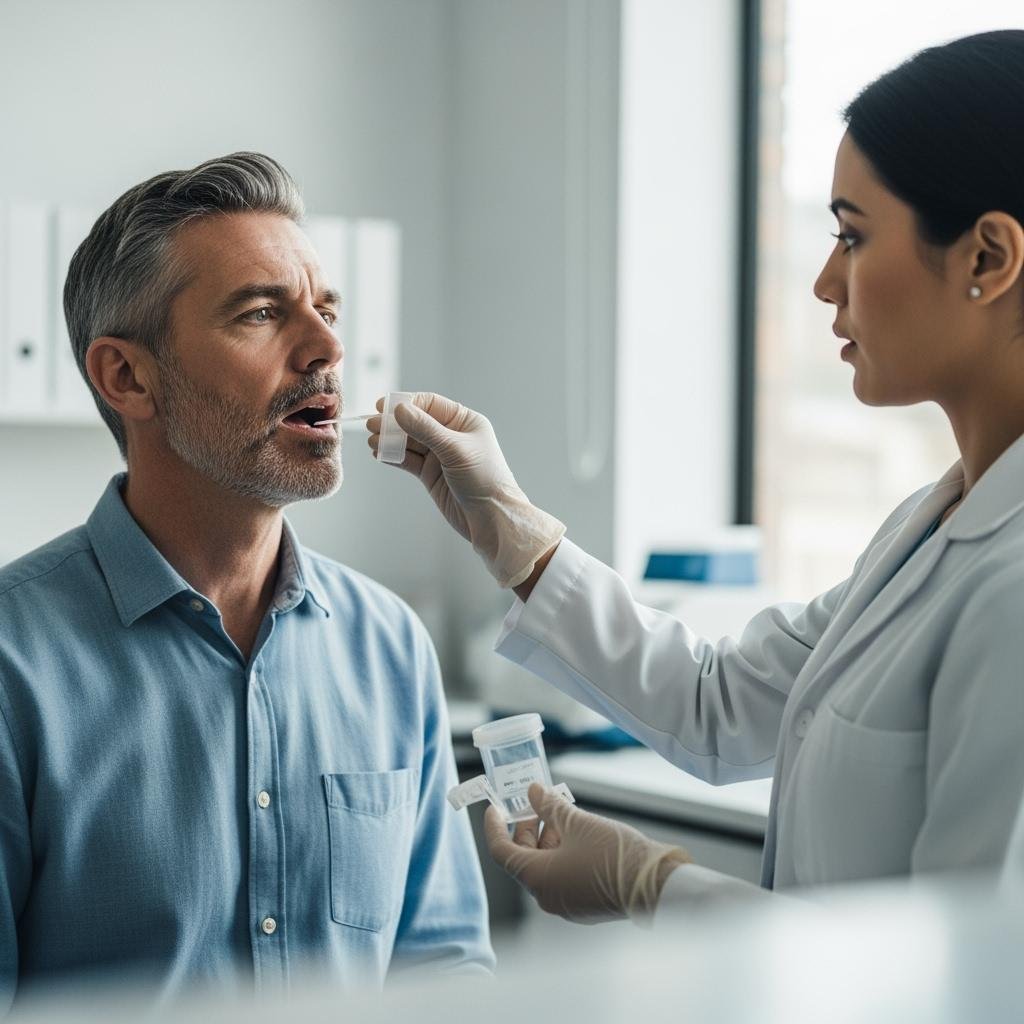Understanding Genetic Testing: A Tool For Disease Prevention
Have you ever wondered if your DNA could reveal something important about your health—before symptoms even begin? What if you could take preventive steps against serious diseases simply by understanding your genetic makeup?
That’s exactly what genetic testing offers. It’s a powerful tool that helps doctors and families make informed health decisions long before problems arise.
In this comprehensive guide, you’ll discover how genetic testing works, how it supports disease prevention, and what it means for your future. By the end, you’ll feel more confident about how this science-backed resource can lead to early action and smarter healthcare decisions. You’re about to learn something that could truly change lives.
No. 1
What Is Genetic Testing and Why Does It Matter?
Genetic testing examines your DNA—the unique code that defines who you are. It identifies changes or mutations in your genes that may increase your risk of developing certain health conditions.
These genetic variations don’t guarantee that you’ll develop a disease, but they can indicate a higher likelihood. Conditions such as cancer, heart disease, and diabetes are often linked to specific gene mutations.
Doctors use genetic test results to create personalized care plans. If they know your risks in advance, they can recommend early screenings, lifestyle adjustments, or even preventive medications. For many, this knowledge brings peace of mind and a proactive path to wellness.
No. 2
How DNA Affects Your Health
Your body contains thousands of genes, each responsible for essential functions like growth, healing, and maintaining balance. When a gene doesn’t function properly due to a mutation, it can disrupt these processes and lead to disease.
Some mutations are inherited from your parents, while others develop over time due to environmental or lifestyle factors.
Genetic testing helps identify these mutations. If a specific gene is linked to a health condition, testing can reveal whether you carry that mutation. This early insight allows you and your healthcare provider to make informed decisions and take preventive action.
It also helps your family members understand their own health risks, creating a ripple effect of awareness and preparedness.
No. 3
Early Detection Makes a Big Difference
One of the most powerful benefits of genetic testing is early detection. Many diseases develop silently, showing no symptoms until they’ve progressed.
Genetic testing can uncover hidden risks long before symptoms appear, giving you time to act.
For example, if you carry a gene associated with a certain type of cancer, your doctor may recommend more frequent screenings. Early detection often means more treatment options and better outcomes.
In some cases, simple lifestyle changes—like improving your diet, exercising regularly, or reducing stress—can significantly lower your risk.
Ringconn
Track your health in style with RingConn – the smart ring fitness tracker designed for your wellness journey.
No. 4
Genetic Testing and Family History
If you have a family history of serious illnesses such as breast cancer, colon cancer, or heart disease, your genetic risk may be higher. That’s because genes are passed down through generations.
A genetic test can determine whether you carry the same mutations that contributed to your family member’s illness. This information is valuable not only for you but also for your children, siblings, and other close relatives.
Doctors use your family history along with genetic testing to identify patterns and create a personalized health plan.
Sharing your results with family members can help them take preventive steps, too. It builds a support system where everyone is better informed and empowered to protect their health.
No. 5
Types of Genetic Tests You Might Take
Genetic tests vary depending on your needs. Some focus on a single gene if your doctor suspects a specific condition. Others scan multiple genes to assess your overall risk for various diseases.
Reasons for testing include:
Investigating symptoms you already have
Assessing risk before symptoms appear
Understanding inherited conditions
Testing is usually done through a blood sample, cheek swab, or saliva. Once your sample is analyzed, your doctor will explain the results.
You may learn that you have a gene mutation, or that your results are negative or inconclusive. In some cases, additional testing may be recommended.
You might also be encouraged to share your results with family members who could be affected. Every result provides an opportunity to learn and take action.
No. 6
Making Health Choices After a Test
What you do with your results is just as important as the test itself. If your results show a higher risk for a disease, your doctor might suggest:
More frequent checkups
Lifestyle changes (diet, exercise, stress management)
Medications to reduce risk
Preventive surgery in high-risk cases
Not all results require drastic changes. Sometimes, simply knowing your risk helps you stay vigilant.
Your doctor will work with you to create a personalized plan that fits your life. This plan can offer peace of mind and a clear path forward.
No. 7
How a DNA Test Can Help You Understand Your Cancer Risk
One of the most important uses of genetic testing is assessing cancer risk. Certain inherited mutations—such as BRCA1 and BRCA2—can significantly increase your chances of developing breast, ovarian, or colon cancer.
A DNA test can detect these mutations early.
With this knowledge, you can:
Begin screenings at a younger age
Make informed decisions about preventive care
Encourage family members to get tested
If you know about cancer risk with DNA tests, you can take steps earlier, like starting screenings sooner or making health changes. This proactive approach can save lives and empower your family to make smart health choices.
No. 8
Is Genetic Testing Right for You?
While not everyone needs genetic testing, many people can benefit from it—especially those with a family history of disease or concerns about inherited conditions.
If you’re curious about your health risks, talk to your doctor. They can help you decide whether genetic testing is appropriate.
For those already diagnosed with a condition, testing can guide treatment options. For healthy individuals, it can offer a roadmap to long-term wellness.
It’s also important to be emotionally prepared. Learning about potential health risks can be overwhelming. That’s why speaking with a genetic counselor before and after testing is highly recommended.
No. 9
What Happens After You Get Results?
After receiving your results, you’ll meet with your doctor or a genetic counselor to discuss what they mean.
Depending on the findings, you may need:
Additional tests
Lifestyle changes
A long-term health management plan
If your results show no mutations, it doesn’t mean you're risk-free. It simply means the specific mutations tested were not present.
Regular checkups, a healthy lifestyle, and ongoing communication with your healthcare team remain essential.
No. 10
What Are the Limits of Genetic Testing?
While genetic testing is a powerful tool, it’s not a crystal ball. It can indicate risk, but it can’t predict with certainty whether you’ll develop a disease.
Some people with mutations never get sick, while others without mutations may still develop health issues. That’s because your environment, habits, and lifestyle also play a major role in your overall health.
Doctors use genetic testing as one piece of the puzzle. It’s a valuable chapter in your health story, but not the whole book.
To stay healthy, you still need to:
Eat a balanced diet
Exercise regularly
Avoid smoking and excessive alcohol
Manage stress
Attend regular health screenings
These daily choices work hand-in-hand with your genetic knowledge to support long-term wellness.
No. 11
How Science Is Making It Better
The field of genetics is evolving rapidly. Today’s tests are faster, more accurate, and easier to understand than ever before. Ongoing research continues to uncover new links between genes and disease, expanding the possibilities for prevention and treatment.
Support for individuals undergoing testing is also improving. Genetic counselors and healthcare providers now work together to ensure patients receive the best possible care.
As genetic testing becomes more mainstream, it will play a central role in preventive healthcare. Schools and communities are also beginning to educate people about genetics, empowering more families to make informed health decisions.
Takeaways
Genetic testing isn’t just for people who are already sick—it’s a smart, proactive step for anyone who wants to stay healthy and plan for the future.
By identifying hidden risks before symptoms appear, genetic testing allows doctors to design better care plans and gives you the power to make informed choices. When you understand your genes, you’re no longer guessing about your health—you’re taking charge of it.
Did this guide help you? Browse the rest of this section for more advice and insights on how to live a healthier, more informed life.
Your DNA holds the key to your future. Use it wisely.
Looking for Wellness resources?
Are you looking to enhance your wellness routine? Explore our wellness partners who offer a wide range of resources to support your journey toward holistic living and well-being.































